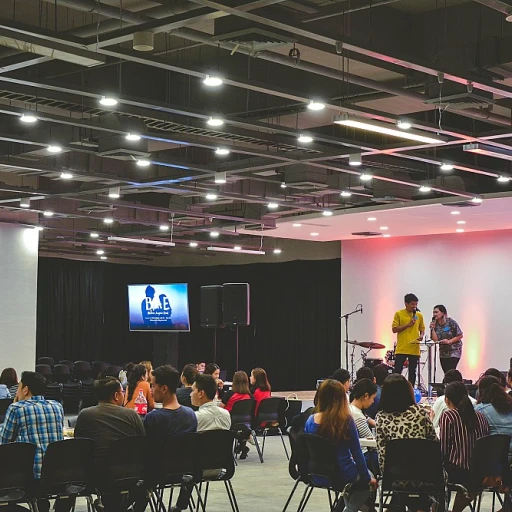The Concept of Employment Sponsorship
Employment sponsorship is a critical aspect in the current global job market, especially as companies in various countries seek to tap into a diverse pool of talent by hiring foreign workers. This process involves an employer taking on specific responsibilities to facilitate the legal employment of a foreign national, often navigating complex immigration laws to ensure all regulations are met.
When employers wish to hire individuals from other countries, they typically require sponsorship for work visas. This means the employer must engage in a sponsorship process, which can vary significantly depending on the country and visa type involved. Whether in the United States or elsewhere, understanding the requirements is crucial for both employers and employees.
In this context, employment sponsorship includes not only the procedural aspects of obtaining a work visa but also ensuring that the foreign worker fulfills all necessary criteria stipulated by immigration laws. It involves an employer commitment to affirm that the job offered could not be filled by local workers or a guarantee that the foreign worker possesses unique skills required for a specific position.
From an employer's perspective, sponsorship employment requires a diligent approach to hiring, often involving substantial documentation and coordination with government entities. Likewise, prospective employees must be prepared to navigate the visa application process, understanding that their eligibility and visa status are closely scrutinized.
Navigating this intricate process effectively requires expertise and a robust communication strategy, as described in this
guide to effective human resources communication. Only by maintaining clear, open channels can both parties effectively surmount the challenges that come with employment sponsorship, paving the way for successful, lawful global workplace integration.
Understanding Employer Responsibilities
Employment sponsorship is not just a term; it involves concrete roles and responsibilities, particularly on the employer's part. Employers offering sponsorship must navigate the complex landscape of immigration laws, visa requirements, and legal obligations to successfully employ foreign workers.
One primary responsibility of employers is managing the visa application process. Often, employers must first demonstrate a need that justifies the hiring of foreign talent, which can involve showing that no suitable job-seeking population within the country can fill the role. This documentation is crucial to the sponsorship employment process.
Employers are also required to maintain detailed records of their sponsored employees. This employer record not only aids in compliance with immigration laws but also helps in ensuring that both the sponsor and the foreign worker adhere to the visa conditions.
In many cases, employers may need to assist with or even fully cover the costs associated with obtaining work visas for foreign workers. This often includes fees for visa applications and any legal consultations.
The sponsorship process also entails administrative tasks such as renewing work visas and staying informed on any changes in immigration policies that could impact the employment visa status of their employees.
Thus, being a sponsor requires a company to not only navigate the various regulations and processes in place for employment sponsorship but also to strategically integrate these foreign national workers into their workforce while adhering to the legal framework. Successful sponsorship can bring global benefits to a company, offering diverse perspectives and skill sets, which is also discussed under the benefits of employment sponsorship.
To understand more about navigating complex organizational processes in employment sponsorship, you can explore
luxury policies in organizational management.
Opportunities for Job Seekers
Employment sponsorship opens a range of exciting opportunities for job seekers, especially those from foreign countries. When employers decide to sponsor a potential employee, it signifies their commitment to facilitating the visa process. This often involves guiding the individual through immigration laws and requirements, ultimately providing a pathway to work in a different country under the appropriate visa type.
For many job seekers, this represents a chance to break into the global workforce. By obtaining a work visa through sponsorship employment, foreign nationals can expand their career horizons, access a diverse range of industries, and gain invaluable international experience.
A sponsored job provides a sense of security and assurance, as the employer is actively engaged in abiding by employer record requirements and immigration standards. Furthermore, with an official visa application process underway, individuals have the advantage of a structured approach to employment, which can lead to further professional growth.
In contrast to some other employment pathways, positions that require sponsorship often offer competitive packages to attract skilled foreign workers. This can include resources and support for employees to settle into the new country, navigate their work visas, and adjust to their new role smoothly.
Sponsorship processes therefore not only cater to employers' needs but also significantly benefit employees, enhancing their employability on a global scale. For those looking to explore how employment sponsorship can lead to substantial career growth, exploring sustainable HR solutions can be incredibly useful. For more insights, visit
enhancing HR communication in the restaurant sector.
Challenges Encountered by Employers and Job Seekers
Navigating the complex realm of employment sponsorship is not without its hurdles. Both employers and job seekers encounter various challenges in this intricate process, which can affect the overall success and sustainability of the sponsorship relationship.
- Complex Immigration Laws: The ever-changing landscape of immigration laws can pose a significant challenge. Employers must stay updated with the current regulations and visa requirements, especially if they are hiring foreign nationals. In countries like the United States, the intricacy of these legal frameworks can make the process daunting for employers, requiring them to invest time and resources into maintaining compliance.
- Visa Type and Status Confusion: For job seekers, particularly foreign workers, understanding visa types and their corresponding visa status can be overwhelming. The choice between different work visas, such as employment visas or work visas, each with specific criteria, adds another layer of complexity. Navigating through which visas require sponsorship can be a stumbling block, leading to potential delays in the process.
- Long and Costly Processes: The sponsorship process itself can be both lengthy and expensive. Employers often bear the costs associated with visa applications and other administrative expenses, which can impact their willingness to sponsor foreign workers. This financial burden can deter some companies from initiating the sponsorship employment process altogether.
- Employer Record and Compliance: Ensuring a clean employer record is crucial in the sponsorship process. Employers must meticulously maintain documentation and adhere to compliance standards to avoid jeopardizing the sponsorship. Any missteps in record-keeping can lead to complications, affecting both the employer's credibility and the foreign worker's ability to stay in the country.
- Cultural and Communication Barriers: Both parties must overcome cultural differences and communication barriers, which can affect job performance and integration into the workplace. Employers and employees must develop communication strategies that bridge these gaps, ensuring a smooth working relationship.
Understanding these challenges is essential for both employers and employees to effectively navigate the sponsorship process. With careful planning and a proactive approach, many of these obstacles can be mitigated, paving the way for a successful employment sponsorship experience.
Effective Communication Strategies in Sponsorship Processes
In the realm of employment sponsorship, effective communication is a critical factor that dictates the smoothness and success of the entire process. When a foreign worker is involved, both employers and employees need to navigate the complex web of rules, visa requirements, and immigration laws. Here's a look at some key communication strategies that can make a difference:
- Clear Understanding of Legal Requirements: Employers should ensure that all parties involved, including HR, recruitment teams, and the foreign national, understand the legal requirements of the employment visa process. Frequent updates on changes to immigration laws in the country where the job is located, such as those in the United States, can prevent misunderstandings that delay sponsorship.
- Documentation and Transparency: Maintaining detailed documentation can streamline the visa application process. Employers must be transparent with the required documentation and visa application timelines, ensuring that the foreign worker is fully informed of what needs to be submitted and when.
- Regular Updates and Feedback: Regular communication with foreign workers regarding their visa status is crucial. Employers should provide status updates on the visa application and notify the employee immediately of any changes or additional requirements.
- Use of Technology: Leverage technology platforms and communication tools to keep all stakeholders informed. Utilize digital communication solutions to facilitate meetings and discussions across time zones and geographies.
- Cultural Sensitivity: Employers should be sensitive to cultural differences and adapt communication styles accordingly. This builds trust and ensures that foreign workers feel valued and understood throughout the sponsorship process.
In conclusion, a structured and proactive communication plan not only benefits the sponsoring employer but also enhances the job experience for foreign workers, positioning them for a successful transition into their new employment environment.
Anticipating Future Trends in Employment Sponsorship
As the job market continues to evolve, both employers and job seekers need to be aware of the future trends in employment sponsorship. These trends are influenced by various factors, including changes in immigration laws, advancements in global mobility, and the increasing demand for skilled foreign workers.
- Technological Advancements: The introduction of new technologies and automation in visa application processes will streamline procedures and reduce errors, making it easier for both employers and foreign nationals to navigate sponsorship requirements.
- Remote Work Opportunities: With the rise in remote work arrangements, employers may seek to hire foreign workers who do not require immediate relocation. This can influence the types of work visas that are necessary, as more flexible visa options may be offered.
- Shifts in Immigration Policies: Countries may adopt more dynamic immigration policies to attract talent. This could lead to changes in visa types and categories, potentially simplifying the process for foreign employees.
- Demand for Specialized Skills: Industries such as technology, healthcare, and engineering often have a high demand for specific skill sets. Employment sponsorship will continue to be a strategic tool for employers to bring in specialized talent from across the globe.
- Enhanced Communication Channels: As highlighted in the sponsorship process, effective communication remains critical. Developments in communication technology will enable better coordination between employers, employees, and immigration authorities in different countries.
- Focus on Sustainability: Sustainability in employment sponsorship may involve practices that promote fair treatment and integration of foreign workers. Employers may focus on ethical hiring and providing support to ensure the well-being of sponsored employees.
These trends underscore the importance of adaptability for both employers and employees in the future employment sponsorship landscape. Employers must remain proactive in understanding and complying with evolving visa requirements, while job seekers should stay informed about how changes may affect their ability to work in different countries.














